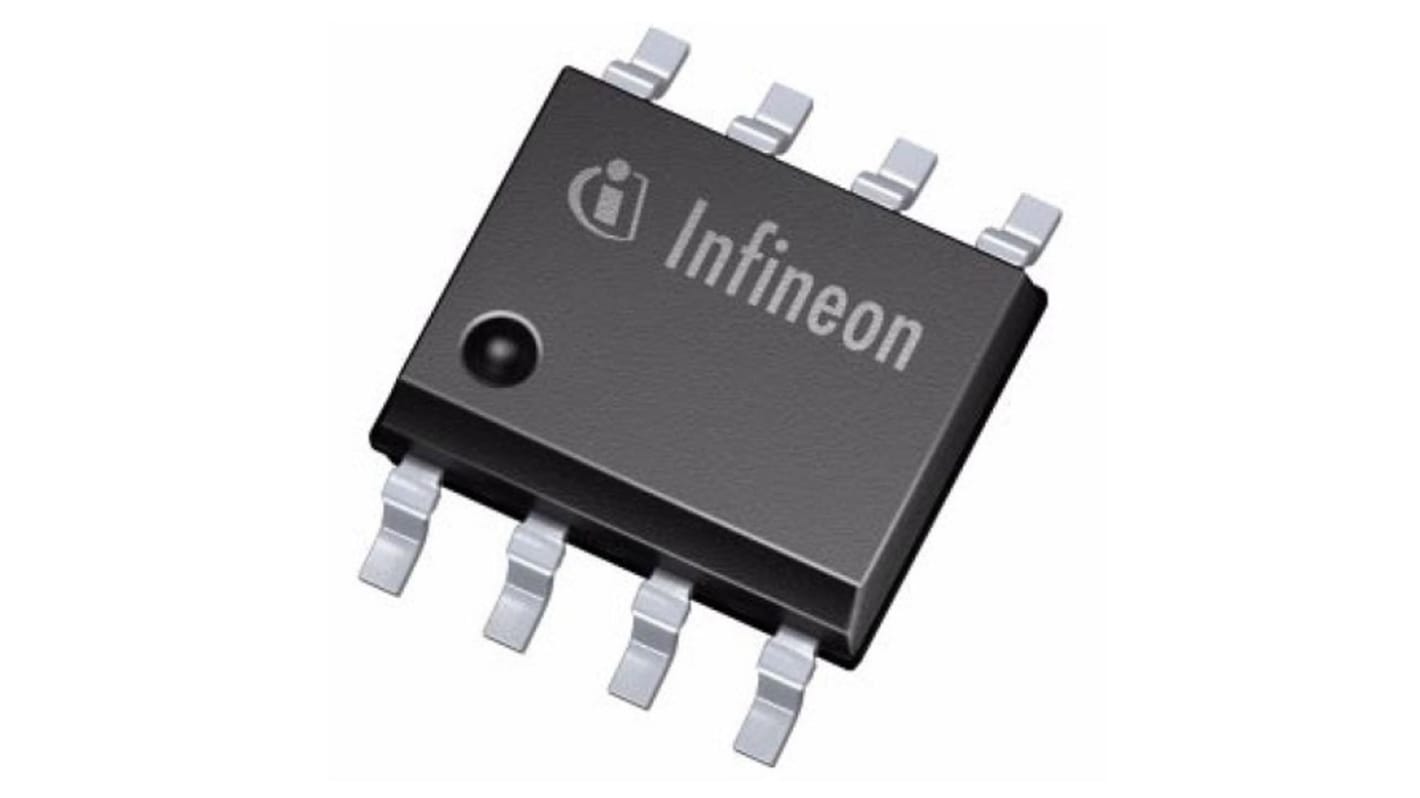Infineon SMD/SMT Hall Effect Sensor, Analogue Output, 4.5-5.5 V, Rectangular Body, 5.5V
- RS Stock No.:
- 244-9745P
- Mfr. Part No.:
- TLE4997A8XUMA1
- Brand:
- Infineon

Subtotal 1 unit (supplied on a continuous strip)*
£1.96
(exc. VAT)
£2.35
(inc. VAT)
FREE delivery for orders over £50.00
In Stock
- 2,375 unit(s) ready to ship
- Plus 999,997,624 unit(s) shipping from 13 August 2026
Need more? Click ‘Check delivery dates’ to find extra stock and lead times.
Units | Per unit |
|---|---|
| 1 + | £1.96 |
*price indicative
- RS Stock No.:
- 244-9745P
- Mfr. Part No.:
- TLE4997A8XUMA1
- Brand:
- Infineon
Specifications
Technical Reference
Legislation and Compliance
Product Details
Find similar products by selecting one or more attributes.
Select all | Attribute | Value |
|---|---|---|
| Brand | Infineon | |
| Output Type | Analogue | |
| Body Style | Rectangular | |
| Mounting Style | SMD/SMT | |
| Supply Voltage | 4.5-5.5 V | |
| Maximum DC Voltage | 5.5V | |
| Switching Current | 52 mA | |
| Length | 5mm | |
| Width | 3.9mm | |
| Depth | 1.2mm | |
| Dimensions | 5 x 3.9 x 1.2 mm | |
| Maximum Operating Temperature | +125°C | |
| Reverse Polarity Protection | Yes | |
| Minimum Operating Temperature | -40°C | |
| Short Circuit Overload Protection | Yes | |
| Select all | ||
|---|---|---|
Brand Infineon | ||
Output Type Analogue | ||
Body Style Rectangular | ||
Mounting Style SMD/SMT | ||
Supply Voltage 4.5-5.5 V | ||
Maximum DC Voltage 5.5V | ||
Switching Current 52 mA | ||
Length 5mm | ||
Width 3.9mm | ||
Depth 1.2mm | ||
Dimensions 5 x 3.9 x 1.2 mm | ||
Maximum Operating Temperature +125°C | ||
Reverse Polarity Protection Yes | ||
Minimum Operating Temperature -40°C | ||
Short Circuit Overload Protection Yes | ||
Infineon Hall Effect Sensor, 5mm Length, 4.5-5.5V Supply Voltage - TLE4997A8XUMA1
This Hall Effect Sensor is an analogue device designed for precise magnetic field detection. With a compact rectangular body measuring only 5 x 3.9 x 1.2 mm, it is suitable for SMD/SMT applications in various industries. Built to operate within a supply voltage of 4.5 to 5.5V, it supports both high accuracy and durability in automotive and industrial contexts.
Features & Benefits
• Integrated dual programmable sensors provide versatile functionalities
• Reverse polarity protection safeguards against incorrect wiring
• Short circuit protection enhances device longevity under fault conditions
• Wide operating temperature range supports diverse environmental conditions
• Configurable magnetic range supports specific application requirements
• Reverse polarity protection safeguards against incorrect wiring
• Short circuit protection enhances device longevity under fault conditions
• Wide operating temperature range supports diverse environmental conditions
• Configurable magnetic range supports specific application requirements
Applications
• Ideal for precise angle and position detection in automotive systems
• Utilised in automation systems requiring robust sensing solutions
• Applicable for the replacement of potentiometers under demanding conditions
• Suitable for in industrial controls, including steering torque sensing
• Utilised in automation systems requiring robust sensing solutions
• Applicable for the replacement of potentiometers under demanding conditions
• Suitable for in industrial controls, including steering torque sensing
How does digital signal processing impact performance?
Digital signal processing provides enhanced stability in the output, mitigating the effects of temperature fluctuations and ensuring consistent performance over time.
What are the implications of the wide temperature range on device usage?
A temperature range of -40°C to +125°C allows for reliable operation even in extreme conditions, making it suitable for use in various harsh environmental applications.
Can this device interface with existing systems easily?
The analogue output is designed to be compatible with standard A/D conversion processes, facilitating integration into various electronic systems without the need for complex modifications.
What configuration options are available to adapt its performance?
Various parameters such as magnetic sensitivity, gain, and bandwidth can be configured via EEPROM, allowing users to tailor performance to specific applications and improve functionality.
